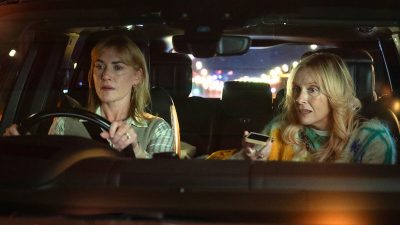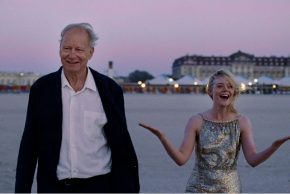Throughout their sixty-year history, Studio 11 have played a decisive role in the development of Hungarian popular music. Its members have always been highly skilled musicians and outstanding soloists, renowned performers of the Hungarian and international jazz scene. The result of decades of artistic activity can be heard and heard on a sea of recordings, television and radio. They are celebrating their 60th foundation anniversary with a concert at Müpa Budapest. We talked to band leader Gyula Tóth, who plays guitar in the band, on this occasion.
Where does the name come from?
The predecessor of this group was a big band with strings, the Hungarian Radio Symphonic Dance Orchestra, founded in 1946. In 1963, when the beat era started, it was decided to create a reduced, but perhaps smaller, line-up under the leadership of Sándor Dobsa and Imre Zsoldos, who had already played in the Hungarian Radio’s big dance orchestra before that. Sándor Dobsa suggested that, as they would be working in a studio and there were eleven of them, the name should be Studio 11.
Has the styles of music you play changed over time?
Yes, times have changed, genres have changed, fashions have changed, and the direction of popular music in general has been in a constant state of flux. Ever since its foundation, Studio 11 has been part of Hungarian Radio, and there was always a need to make newer and newer records, because at that time you couldn’t access the music with a click of a button. There was a demand for new productions, and this kept the band constantly working. The founding members came predominantly from the jazz direction, the musicians were highly qualified and there were always high expectations. Light music requires a certain creativity, because you had to play pieces that were not so precisely orchestrated and notated. Jazz is not really a genre, it’s a performance art approach.
How did you become the leader of the band and what responsibilities does this entail?
Imre Zsoldos died tragically in the mid-1980s, leaving Sándor Dobsa alone at the head of the band. I officially joined in February 1989, at a try-out for a guitarist during my military service. I couldn’t start immediately, but they were so kind and helpful that they did everything they could to maintain that role for me. I was able to go on foreign tours with them during this time, they officially asked for annual leave for me at the army. Sadly, in 2005, Sándor Dobsa, who was a respected, great and very good man, fell ill. Until then he had a motherly attitude at the head of the band, it is very difficult to put into words how versatile and how well he managed our affairs. He was also excellent at dealing with any problems or internal tensions. He asked me for advice several times when he was active. When it became clear that he could no longer carry out his duties because of his illness, he took me aside and told me that he would propose me as the new leader. I was very honoured by his choice, but I did not want to do it alone. So I asked my friend Gyula Csepregi – who has since sadly also passed away – to help me with the tasks. Today, I lead the band on my own.
How can you adapt to the rapid changes in music and the performing arts today? How can values be preserved?
In some ways, we don’t feel them so directly. We try to keep our history alive, and luckily there are opportunities to do so. Recently, for example, we had our István S. Nagy Memorial Evening at the Stefánia Palace where we played the same songs as in ’68 or ’75. Nowadays, young performers sing the same songs of Péter Máté or Pál Gábor S., for example. We also regularly play Cserháti memorial evenings all over the country with great success.
What can the audience expect at the anniversary concert, what kind of music will be performed?
We have thought a lot about what the celebratory programme should be. Of course, we’ll be revisiting songs from our past, we’ll have reworked emblematic dance songs and some that we’ll be performing in their original guise, but we’ll also be very quickly looking at the present and where we want to go in the future. It’s a world that has always been connected to the band, it’s a swing jazz lineage, and we’ll also look at how Anglo-Saxon popular music relates to jazz in a broader sense. And in the last block we’ll be doing something quite contemporary, for example playing some of our own compositions by one of our members, which will take you into a modern, jazz-rock, funky world. After a lot of discussion, Réka Koós, Nikoletta Szőke, Tamás Vastag and Viktor Király will sing with us. We will also be playing Viktor Király’s pop hits in a different guise, harmonised with jazz solos, to name just one example of the many interesting things we will be doing.
András Csonka will be the host. How does he relate to you?
We worked with him a lot, both in radio and in the era that followed. For example, he sang at the István S. Nagy Memorial Evening, which I mentioned earlier. Now we asked him to be a presenter, because we wanted to tell the story of the orchestra, but not in the form of an academic lecture. He will tell the main moments and we will illustrate the presentations with videos and projections. He is a great partner and a person fitting to do this. I’ll let you in on a secret: he will even sing a song at the end.
Article: Anna Rácz
Translation: Zsófia Hacsek

























Comments